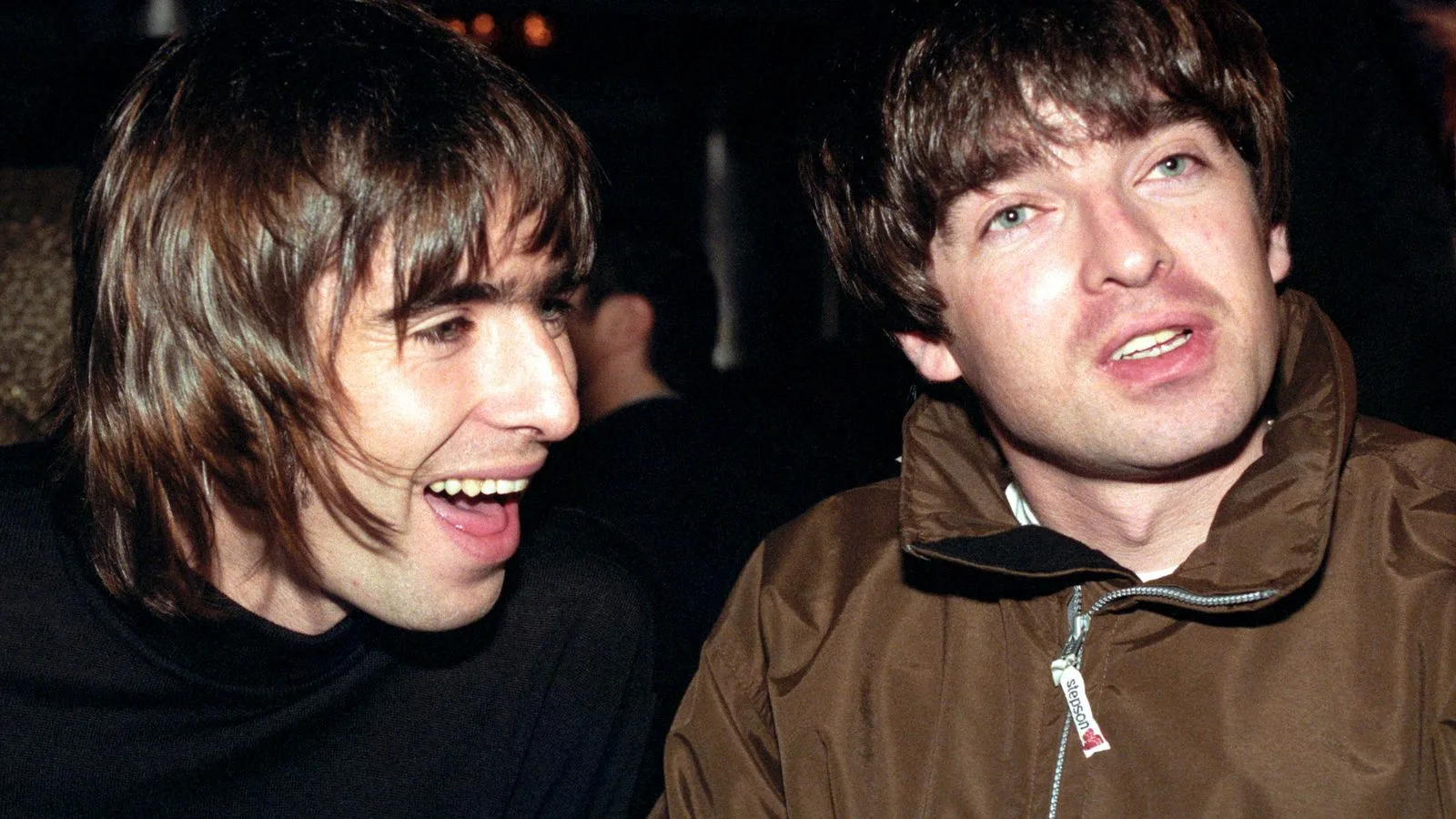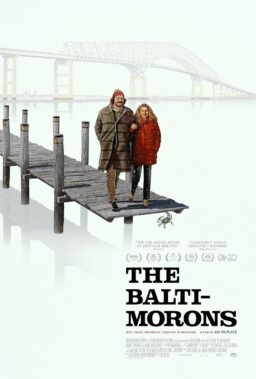By the time you read this, Noel and Liam Gallagher will have finally put the finishing touches on a truce to their 16-year cold war that began when Oasis broke up on August 28, 2009, before their scheduled Rock en Seine appearance. The breakup, which was precipitated by a backstage fight involving a smashed guitar and a thrown plum, wasn’t their first bust-up. But it’s the one that caused their longest split. Since then, the brothers behind “Wonderwall” have sparred on social media and through the press, abstaining from speaking in person for the entirety of their separation. It wasn’t until August of last year that Noel and Liam decided to bury the hatchet, igniting one of the hottest ticket-buying frenzies for a globetrotting tour in history (the tour begins in Cardiff, Wales, on July 3).
While it remains to be seen how their reunion will fare (I will be attending the band’s second Edinburgh gig), their renewed partnership has sparked nostalgia for these Britpop kings, whose music changed the face of the UK and even penetrated popular culture, including memes, tabloids, commercials, and more. It’s worth looking back at their influence on film and television, which sometimes caused their music to appear in the most unlikely of places.
For this listicle, I allowed for certain songs to have a max of two mentions (you could honestly make an entire list of just “Wonderwall” needle drops) and tried to pull works from across the decades. It was tough fitting in as much as I could (a shout out to “Our Friends in the North” using “Don’t Look Back in Anger“). Although these needle drops aren’t necessarily from the best movies or television shows, they capture the mixture of hope and sadness that has always driven the band’s best music. So, stand up beside the fireplace and be mad for it. Here are the 10 best Oasis needle drops.
“The Brothers Grimsby“
In a film that might as well have cast Noel and Liam as estranged siblings Nobby (Sacha Baron Coen) and Sebastian (Mark Strong)—brothers with heavy Manc accents and mod cuts who went down separate paths, one as an alcoholic football hooligan and the other as an MI6 agent—there needed to be an Oasis song. In this case, it’s the hell-raising, T-Rex indebted, working-class anthem “Cigarettes & Alcohol.” It plays when Nobby prepares for a secret mission, zipping up pants that don’t fit, and donning a garish gold chain and contact lenses that double as a secret camera. When Nobby steps out from a shack, he struts with an open swaggering strut common to Liam. The party atmosphere is further ratcheted up when he rides a zebra and taunts a leopard. It’s the kind of raucousness you’d expect from the rock stars themselves.
‘The Butterfly Effect’
You could pick out a couple of cinematic instances for “Stop Crying Your Heart Out.” The track, for example, also makes an appearance in “Made of Honor.” But for the purposes of this list, I’m picking “The Butterfly Effect.” In that film, Ashton Kutcher, already trying to step out from the shadows of “That ’70s Show,” plays a college student who, upon discovering he can travel back in time, attempts to change the past only to ascertain the unforeseen consequences such alterations can cause. Toward the end, having learned his lesson, Kutcher seeks to burn his journals and videos so he doesn’t attempt to revise the past again. Eight years later, he passes his lost love on a New York Street. But he barely recognizes her.
“Stop Crying Your Heart” is a schmaltzy ballad, released back when Oasis were trying to replicate the success of “Wonderwall.” Nevertheless, with a gentle guitar and a heavy piano, along with Beatles-influenced backing vocals and lush strings, the song is a heart-wrenching ode to accepting the love that can’t be regained. Its use in “The Butterfly Effect” could certainly be accused of being overwrought, but it also displays the kind of earnestness that made the film into a hit with younger teenage audiences.
“Cold Case”
I don’t know who was choosing the music for “Cold Case,” but they absolutely loved Oasis. Four separate songs from the band: “Don’t Go Away,” “Little By Little,” “Don’t Look Back in Anger,” and “Let There Be Love”—appeared on the supernatural series about a homicide detective named Lily Rush (Kathryn Morris) working to solve hopeless mysteries. Oftentimes, the show’s episodes would jump way back into the past, providing flashbacks featuring the victims, before ending with a needle drop that would show the ghost of the deceased finally at peace.
Of Oasis’ four appearances, the most fitting occurred during the season two episode, “Revenge,” a case about a boy who was found drowned after being kidnapped from an outlet mall. A sweeping ballad from the band’s third album, Be Here Now, the aching track “Don’t Go Away,” which features what might be one of Noel’s best guitar solos, is rendered as an emotionally bruising gut punch when the boy’s ghost is seen wandering the pier where he died.
“CSI: Miami“
As you can tell by now, often when Oasis is used in a TV series, it’s usually pretty on the nose. Well, you can’t get more on brand than a procedural like “CSI: Miami” ending on the band’s moody orchestral masterpiece “The Masterplan.” That happened in episode two of the show’s second season (for some reason, many of their TV needle drops occurred in this series’ sophomore season) to top off a mystery about an undersea treasure hunter murdered by a spear gun.
While not a single, “The Masterplan” is among the band’s most accomplished songs, so much so that it serves as the title of their beautiful B-side collection. Released as the second side to “Wonderwall,” the song features a soaring Noel vocal matched by his most ethereal lyrics: “’Cause everything that’s been has passed/The answer’s in the looking glass/There’s four and twenty million doors/On life’s endless corridor/Say it loud and sing it proud today.” Though its use might be as unsubtle as David Caruso’s sunglasses, it’s still a literal showstopper.
“East of Eden“
While the UK and South America are well-known hotspots for finding Oasis fans, Asia might actually have their most rabid supporters (which makes Liam’s recent social media gaffe sting a bit more). It makes sense then that a Japanese anime series like “East of Eden,” which follows an amnesiac man who awakens with cash and a gun in Washington, D.C., while a missile strike terrorizes Japan, would take a shine to the Gallaghers. Running for 11 episodes in 2009, the series utilized the band’s final single “Falling Down” for its opening credits. A psychedelic track sung by Noel, the song’s propulsive percussion, otherworldly atmosphere, and woozy mellotron stand as the band’s most sonically advanced work, the kind that finally offered the type of experimentation the Gallaghers often promised but never totally delivered on.
‘The Faculty“
Robert Rodriguez’s ‘The Faculty” is a who’s who of ’90s teendom. Taking place at an Ohio high school, the sci-fi horror flick features Josh Hartnett, Elijah Wood, Jordana Brewster, Clea DuVall, and more as students grappling with murderous aliens taking over the bodies of their teachers. “Stay Young,” the band’s b-side to their Be Here Now lead single “D’You Know What I Mean?,” serves as the outro to the movie before the end credits. With everything having returned to normal at school, the camera cranes upward, surveying the students who are buzzing around the campus’s quad. The needle drop communicates that despite the bloodshed and horror these kids have witnessed, they’ll ultimately be alright. These horrors haven’t snatched away their youth. It’s made them treasure their teenage years even more.
“Fear Street Part Three: 1666“
The song Noel claimed changed the band’s entire trajectory, “Live Forever,” the existential mega-hit from their debut album, Definitely Maybe, finds a cozy place in the supernatural period drama “Fear Street Part Three: 1666.” The song, with its deep toms and light falsettos, is kicked off in the movie by a car crash. We then learn that with the arrest of the evil Sheriff Goode (Ashley Zuckerman), the curse that once hung over the small suburb of Shadyside is lifted. With the track coming at the end of the film, its plaintive desire for immortality is juxtaposed with the teenage characters’ memories of those they lost along the way. It’s a poignant moment for a tear-jerking, fist-in-the-air song that puts a lovely bow on the horror flick.
“Girls“
With what might be the most modest use of “Wonderwall,” “It’s a Shame About Ray,” the season two episode of “Girls,” features Hannah (Lena Dunham) singing the song to herself while taking a bath. Her a cappella rendition is interrupted when Jessa (Jemima Kirk) appears in tears, crying over a disastrous dinner with her husband’s parents. It’s a low-key scene, one devoid of any melodrama. Instead, it’s merely about Hannah being there for Jessa, even if the pair never talk about what’s ailing her. The scene, for good measure, even ends with the first few strums of the song.
“Lost“
Similar to “Girls,” the instance in “Lost” is more of a cover than a needle drop, except “Lost” has the literal added bonus of featuring “Wonderwall” twice. The first occurs in the third season’s episode “Flashes Before Your Eyes,” where a flashback sequence shows perpetual failure Desmond Hume (Henry Ian Cusick) coming across Charlie (Dominic Monaghan) busking on a London street with the song. In the second occurrence, Charlie’s performance of the hit is interrupted by rain.
In a series about those who surprisingly survive the near-certain death of a plane crash only to spend every waking hour going down rabbit holes to explain their newfound sandy home, the lyric “And all the roads we have to walk are winding,” might be a bit on the nose. But Charlie deserves props for playing “Wonderwall.” He did it before it became a meme made to chastise every desperate wannabe guitarist. Instead, he exemplifies the reality that any busker worth their salt needed that song in their repertoire if they ever hoped to make a dime.
“Snatch”
Less a song and more of call to arms, “Fuckin’ in the Bushes,” the opening track to the group’s fourth studio album Standing on the Shoulder of Giant is a dizzying mix of guitars backed by samples of interviews from the documentary “Blue Wild Angel: Jimi Hendrix Live At The Isle Of Wight.” Guy Ritchie utilized the song for Brad Pitt’s boxing match in “Snatch.” Of the needle drops on this list, it’s by far the most unique and cinematic. Ritchie drafts off the track’s grooving energy to punctuate the bloody blows, the sweaty testosterone, and slow-motion violence of a tatted Pitt enduring some serious punishment. It’s a scene that perfectly understands the inherent danger the band became mythical for during the noughties, when trashing hotel rooms and instigating brawls was all part of the rock n’ roll lifestyle.












